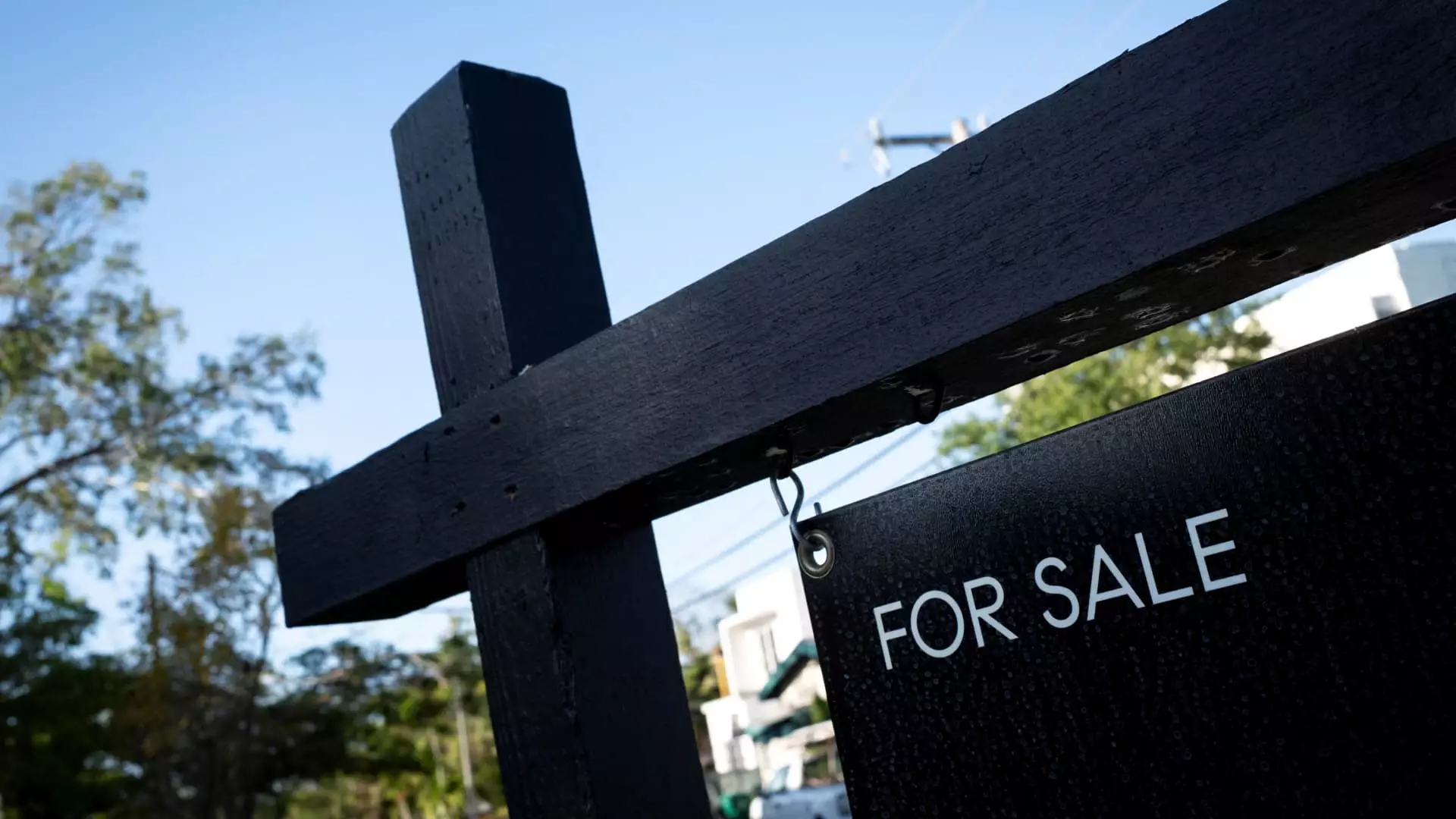In a landscape already fraught with uncertainty, the latest data from the Mortgage Bankers Association showcases a staggering 12.7% plunge in total mortgage application volume over the last week. This sharp decline is not merely a statistical anomaly; it signals a significant shift in the housing market, driven primarily by ballooning interest rates. The average contract interest rate for a standard 30-year fixed mortgage has now surged to 6.90%, marking a troubling high not seen in two months. It’s alarming, to say the least, and hints at a looming crisis for prospective homebuyers and those considering refinancing.
Understanding the implications of an uptick in interest rates is integral to grasping the current climate. For those looking to purchase homes, the financial strain adds an insufferable burden. Many potential buyers find themselves trapped in a bitter dilemma: do they proceed with a purchase at these elevated rates, or do they hold off in hopes of a market correction? This indecision is compounded by the realization that home prices themselves continue to soar, while recent market volatility has left many hesitant to liquidate their stock holdings for a down payment.
Refinancing Harder Than Ever
Equally concerning is the sharp 20% decline in refinance applications in just one week. While these applications remain 43% higher compared to the same week last year, the sharp falloff indicates that many homeowners no longer see a compelling enough reason to refinance under these conditions. The refinance share of mortgage activity has plummeted from 41.3% to 37.3%, exemplifying a broader trend towards a complete stagnation of mortgage activity. This could lead to decreased home equity growth for many borrowers, trapping them in a cycle of stagnation.
Moreover, those who might typically leverage refinancing as a means of alleviating financial pressures are now faced with dwindling options. An unstable economy coupled with aggressive interest rate hikes serves to undermine the very fabric of the homeownership experience. In a society that has traditionally valued homeownership as an asset, this recent turn of events raises alarming concerns about long-term economic health.
The Psychology of Economic Uncertainty
Amid all these financial metrics lies a profound psychological impact; economic uncertainty does not just affect numbers—it deeply influences individual behavior. The apprehension surrounding the housing market is palpable, with potential buyers wavering due to fears of persistent high rates and an unstable economy. Joel Kan, vice president and deputy chief economist at the MBA, emphasizes these psychological barriers, noting that both economic apprehension and rate volatility strongly dissuade prospective homeowners from entering the market.
As we navigate this precarious terrain, highlighting the urgency of proactive measures to tackle the soaring costs of borrowing becomes paramount. Enabling market stability through sound economic policy would serve to protect the interests of everyday Americans seeking to achieve the quintessential American dream of homeownership, rather than risk being sidelined by systemic financial challenges. The current trajectory cannot be understated; without a concerted effort to enhance affordability, the American middle class risks being further entrenched in a cycle of economic disenfranchisement.

